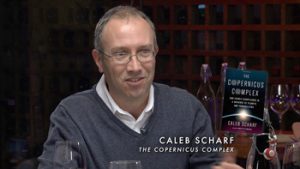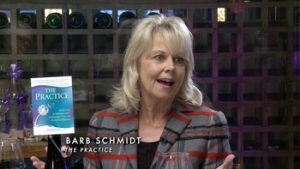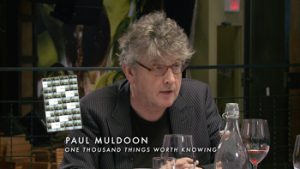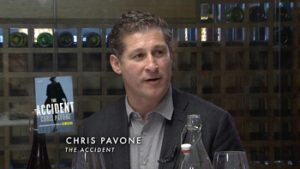Episode #205 “Super Fortuna Believer”
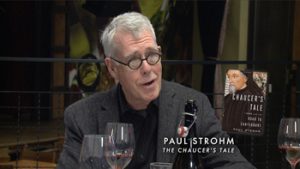 Paul Strohm,
“The Chaucer’s Tale” takes on the theme of rebirth. At the start of
1386, Chaucer was a middle-aged Londoner with a distasteful customs job
and husband to a higher-ranking wife. By 1387, he was forced to leave
London jobless, a widower, and without political allies. Strohm unravels
how this calamitous year led to Chaucer’s rebirth as a literary
celebrity.
Paul Strohm,
“The Chaucer’s Tale” takes on the theme of rebirth. At the start of
1386, Chaucer was a middle-aged Londoner with a distasteful customs job
and husband to a higher-ranking wife. By 1387, he was forced to leave
London jobless, a widower, and without political allies. Strohm unravels
how this calamitous year led to Chaucer’s rebirth as a literary
celebrity.
Thank you to City Winery NY
From
time immemorial, mankind has feared the power of a boundless universe,
sky falling, earth freezing, floods, and of course its wheel of fortune.
But mankind’s main pursuit consists in making meaning, finding
explanations and creating stories, which both sooth its fears and serve
as moral compasses.
Caleb Scharf,
“The Copernicus Complex” asks the big questions: What is our
significance in the vast, ever-expanding universe of which we occupy
such a small part? What are the chances we will one day detect life
elsewhere in the cosmos? According to Scharf, there is compelling
evidence that the Copernican Principle—the idea that the Earth is an
insignificant, unremarkable speck in a boundless sea—is in need of an
update.
Barb Schmidt,
“The Practice,” looks at how the mind has a way of interfering with
personal happiness, often causing stress and doubt. Getting in touch
with one’s inner source of peace and following its guidance over the
mind often-unfounded concerns requires training and discipline. This
guide is for people who are looking for confidence, less stress, and
deeper meaning along life’s path.
 Paul Strohm,
“The Chaucer’s Tale” takes on the theme of rebirth. At the start of
1386, Chaucer was a middle-aged Londoner with a distasteful customs job
and husband to a higher-ranking wife. By 1387, he was forced to leave
London jobless, a widower, and without political allies. Strohm unravels
how this calamitous year led to Chaucer’s rebirth as a literary
celebrity.
Paul Strohm,
“The Chaucer’s Tale” takes on the theme of rebirth. At the start of
1386, Chaucer was a middle-aged Londoner with a distasteful customs job
and husband to a higher-ranking wife. By 1387, he was forced to leave
London jobless, a widower, and without political allies. Strohm unravels
how this calamitous year led to Chaucer’s rebirth as a literary
celebrity.
